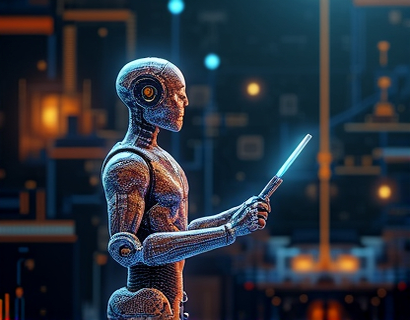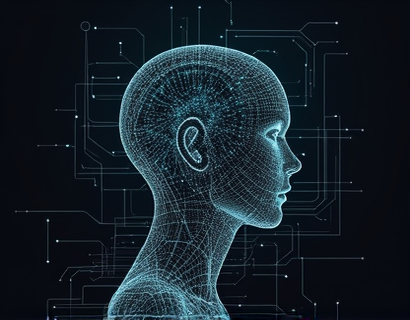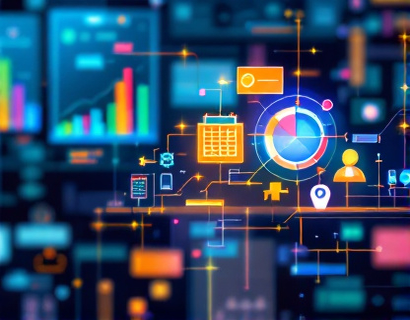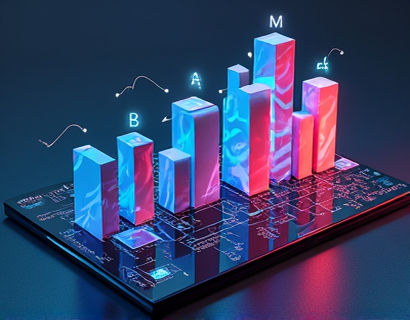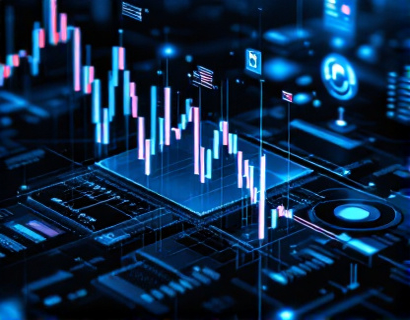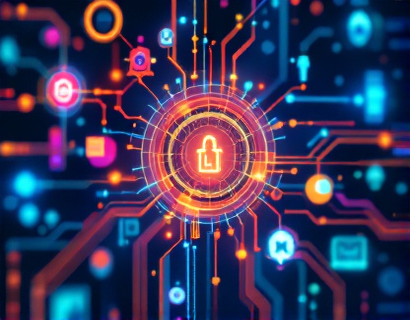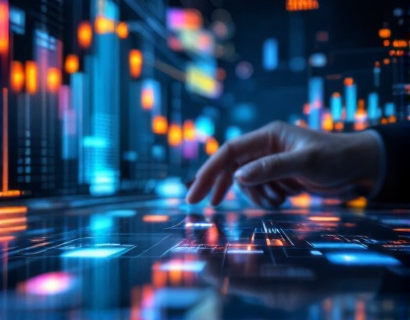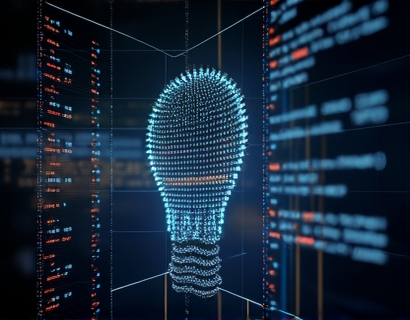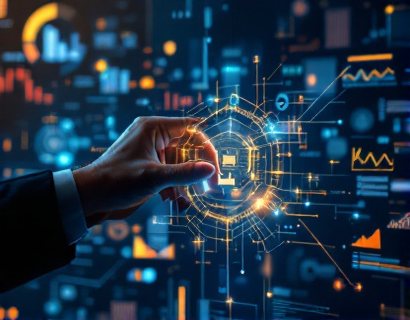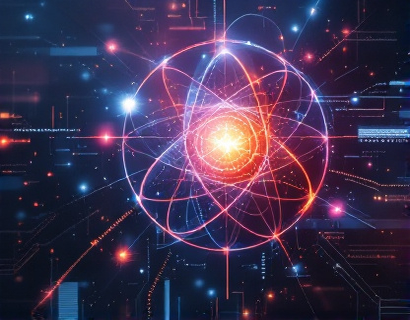Next-Gen Digital Transformation: Harnessing AI and Blockchain for Advanced Ecosystem Solutions
The digital landscape is undergoing a profound transformation, driven by the powerful fusion of artificial intelligence (AI) and blockchain technology. This synergy is not just a trend but a fundamental shift in how businesses operate, innovate, and secure their digital assets. The integration of AI and blockchain offers unprecedented opportunities to enhance efficiency, security, and innovation, providing a competitive edge in the rapidly evolving digital market.
At the core of this transformation is the ability to create advanced ecosystem solutions that leverage the strengths of both technologies. AI, with its capacity for machine learning, natural language processing, and predictive analytics, combined with blockchain's inherent properties of decentralization, transparency, and immutability, creates a robust framework for next-generation digital solutions.
Enhancing Business Operations with AI and Blockchain
One of the primary ways AI and blockchain are revolutionizing business operations is through supply chain management. Traditional supply chains are often plagued by inefficiencies, lack of transparency, and high costs. By integrating blockchain, businesses can create a tamper-proof ledger that tracks every step of the supply chain, from raw materials to the end consumer. This transparency ensures accountability and reduces the risk of fraud.
AI enhances this process by providing real-time analytics and predictive insights. Machine learning algorithms can analyze vast amounts of data to identify patterns, predict demand, and optimize inventory levels. For instance, a manufacturing company can use AI to forecast component shortages and automatically trigger orders, ensuring smooth production processes. Blockchain ensures that all transactions and data exchanges are secure and verifiable, reducing the need for intermediaries and lowering costs.
Security and Trust in Digital Transactions
Security is a paramount concern in the digital age, and the combination of AI and blockchain addresses this challenge effectively. Blockchain's decentralized nature eliminates single points of failure, making it inherently more secure against cyber attacks. Each transaction is encrypted and linked to the previous one, forming a chain that is nearly impossible to alter without detection.
AI plays a crucial role in enhancing security by detecting and mitigating threats in real-time. Machine learning models can analyze network traffic, user behavior, and transaction patterns to identify anomalies that may indicate a security breach. For example, an AI system can flag unusual login attempts or detect patterns that suggest a potential insider threat. This proactive approach to security ensures that businesses can respond swiftly to emerging threats, protecting sensitive data and maintaining customer trust.
Innovation through Smart Contracts and Decentralized Applications
Smart contracts, self-executing contracts with the terms directly written into code, are a groundbreaking application of blockchain technology. When combined with AI, smart contracts can become even more powerful and adaptive. AI can analyze complex scenarios and dynamically adjust contract terms based on real-time data, ensuring that agreements remain relevant and fair.
Decentralized applications (dApps) built on blockchain platforms benefit greatly from AI integration. dApps can leverage AI to provide personalized user experiences, automate tasks, and offer intelligent recommendations. For instance, a decentralized finance (DeFi) platform can use AI to analyze market trends and automatically execute trades, optimizing returns for users. This level of automation and intelligence not only enhances user experience but also drives innovation by enabling new use cases and services.
Data Management and Privacy
Effective data management is crucial for any digital transformation strategy. Blockchain provides a secure and transparent way to manage data, ensuring that information is tamper-proof and accessible only to authorized parties. AI complements this by enabling advanced data analytics and privacy preservation techniques.
Federated learning, an AI technique that allows models to be trained across multiple decentralized devices or servers, is a prime example of this synergy. In federated learning, data remains on local devices, and only model updates are shared, enhancing privacy and reducing the risk of data breaches. This approach is particularly valuable in industries like healthcare, where sensitive patient data must be protected while still being utilized for meaningful insights.
Case Studies and Real-World Applications
Several industries are already reaping the benefits of AI and blockchain integration. In the healthcare sector, a hospital network can use blockchain to create a secure and interoperable patient data system. AI algorithms can analyze this data to predict patient outcomes, optimize treatment plans, and identify potential health risks. This not only improves patient care but also enhances operational efficiency and compliance with regulatory standards.
In the financial industry, banks and financial institutions are leveraging blockchain for cross-border payments and trade finance. AI-driven solutions can automate KYC (Know Your Customer) processes, reduce fraud, and provide real-time risk assessments. For example, a blockchain-based platform can use AI to analyze transaction patterns and automatically verify the identity of users, streamlining the onboarding process and reducing manual errors.
Challenges and Considerations
While the potential of AI and blockchain is immense, there are several challenges that organizations must address to fully harness these technologies. One of the primary concerns is the complexity of integration. Combining AI and blockchain requires a deep understanding of both technologies and their interoperability. Organizations need to invest in skilled personnel and robust infrastructure to overcome these challenges.
Another consideration is the regulatory landscape. As AI and blockchain are relatively new, regulatory frameworks are still evolving. Companies must stay informed about local and international regulations to ensure compliance. This includes data protection laws, financial regulations, and industry-specific standards.
Scalability is also a critical factor. While blockchain technology offers many benefits, it can face performance issues at scale. Solutions like sharding and layer 2 protocols are being developed to address these concerns, but organizations must carefully evaluate the trade-offs when implementing blockchain-based systems.
Future Trends and Opportunities
The future of digital transformation is bright, with AI and blockchain continuing to drive innovation and efficiency. One emerging trend is the integration of AI with other blockchain applications, such as the Internet of Things (IoT) and edge computing. This convergence can lead to smarter, more autonomous systems that can operate with minimal human intervention.
Another exciting opportunity is the development of decentralized AI markets, where AI models and data can be bought, sold, and shared in a secure and transparent manner. This could democratize access to AI technologies, enabling smaller organizations and individuals to leverage advanced analytics and machine learning without significant upfront costs.
As the digital landscape continues to evolve, the synergy between AI and blockchain will play a pivotal role in shaping the next generation of digital ecosystems. By embracing these technologies, businesses can not only enhance their operations and security but also drive innovation and stay ahead of the competition.








